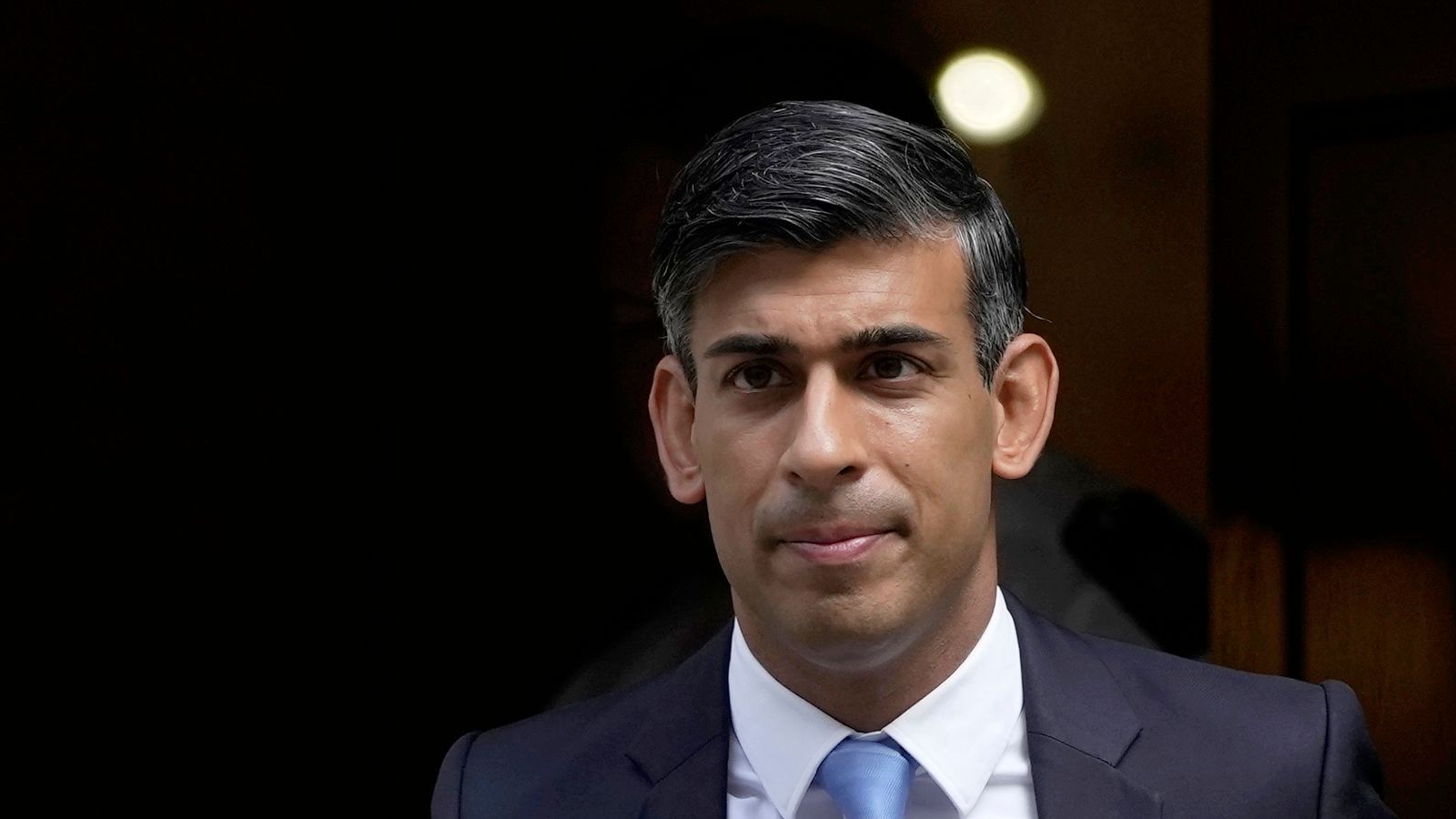Rishi Sunak has confirmed he will be easing a series of green policies under a “new approach” designed to protect “hard-pressed British families” from “unacceptable costs”.
Delivering a speech from Downing Street, he said he is still committed to reaching net zero by 2020, but the transition can be done in a “fairer and better way”.
In a major policy shift, the prime minister confirmed he will delay a ban on the sale of new diesel and petrol cars by five years and a weakening of targets to phase out gas boilers.
He also said a “worrying set of proposals” that had emerged during debates on net zero would be scrapped, including:
- To enforce upgrades to home insulation in two years
- For government to interfere in how many passengers you can have in your car
- To force you to have seven different bins in your home
- To make you change your diet and harm British farmers by taxing meat
- To create new taxes to discourage flying or going on holiday
“Our destiny can be of our own choosing,” Mr Sunak said – while calling for politicians to be “honest” and to put the long-term interests of the country before short-term political rows on green issues.
Explaining the government’s decision to delay the ban on the sale of new petrol and diesel cars – currently due in 2030 – by five years, he said this would give businesses “more time to prepare”.
He also said people would still be allowed to buy secondhand diesel and petrol cars after that date and this would align the UK’s approach with countries across Europe, Canada and many US states.
On the transition from gas boilers to heat pumps, Mr Sunak said the government would never force anyone to make the switch.
This will only be required when people are due to change their boiler anyway and even then, not until 2035.
To help households for whom that will be the hardest, he said an exception will be introduced so they would not have to make the change.
And he said rather than banning boilers “before people can afford the alternative” the government is going to “support them to make the switch”.
Confirming new money to help with boilers, the prime minister said: “The boiler upgrade scheme which gives people cash grants to upgrade their boiler will be increased by 50% to seven and a half thousand pounds.
“There are no strings attached. The money will never need to be repaid.”
Similarly, he said subsidies for making homes more energy efficient would continue – but not one would be forced to take such measures.
Politics live: Rishi Sunak gives speech from Downing Street
Referring to heatwaves and wildfires this summer, Mr Sunak said “no one can doubt” the reality of climate change.
But he added there was “nothing ambitious” about forcing through changes to people’s lives “without any meaningful democratic debate”.
He said no one in Westminster had yet had the “courage” to “look people in the eye and explain what’s really involved” with meeting net zero by 2020.
“That’s wrong and it changes now,” the prime minister said.
Mr Sunak went on to defend the UK’s record, arguing the country is “so far ahead” of other countries in the world when it comes to cutting greenhouse gas emissions.
The prime minister said the “risk” of changing too fast to meet net zero was that the public would stop supporting it – jeopardising the chances of the UK ever meeting the goal.
“This debate needs more clarity, not more emotion,” Mr Sunak added.
“We seem to have defaulted to an approach that would impose unacceptable costs on hard-pressed British families,” he said.
Despite the “new approach”, the prime minister insisted the UK would meet its international obligations on climate change – such as those made under the Paris Climate Accords.
Johnson and Gore among critics
The announcement comes after last night’s leak of plans to push back key target dates for switching to green energy, which have triggered a huge row within the Tory party.
In a rare late-night statement, Mr Sunak said his plans would not be derailed by a “leak”, claiming politicians “of all stripes have not been honest about costs and trade-offs” associated with net zero.
However, he has faced backlash from across the political spectrum – with critics ranging from former Tory prime minister Boris Johnson to ex-vice president of the United States, Al Gore.
Climate scientists say urgent cuts are needed to the world’s greenhouse gas emissions if we are to stop temperatures rising to a potentially catastrophic extent.
In the summer, scientists warned extreme heat events were rapidly on the rise due to climate change.
Read more:
Braverman: ‘Bankrupting Britons won’t save planet’
Sunak’s messaging suggests net zero is negotiable
What could be scrapped from net zero pledges?
Tory MPs split over slowing of net zero pace
The UK’s commitment to reach net zero by 2050 was written into law in 2019.
Mr Sunak has said he is still committed to that target but wants to make sure the measures to get there don’t add extra costs to households.
However, he faced criticism for disrupting the certainty needed for firms to invest in Britain, particularly the car industry.
Environmental groups also warned achieving net zero requires deep emissions cuts this decade and that they cannot just be cut at the last minute.
While Labour’s Ed Miliband, the party’s shadow climate secretary, accused Mr Sunak of a “panicked” speech on the issue and “economic illiteracy” which would lead to higher energy bills for families.
Tory MPs are split, with some seeing the row back on costly green policies as a vote winner and others fearing the impact it will have on business and the climate.
